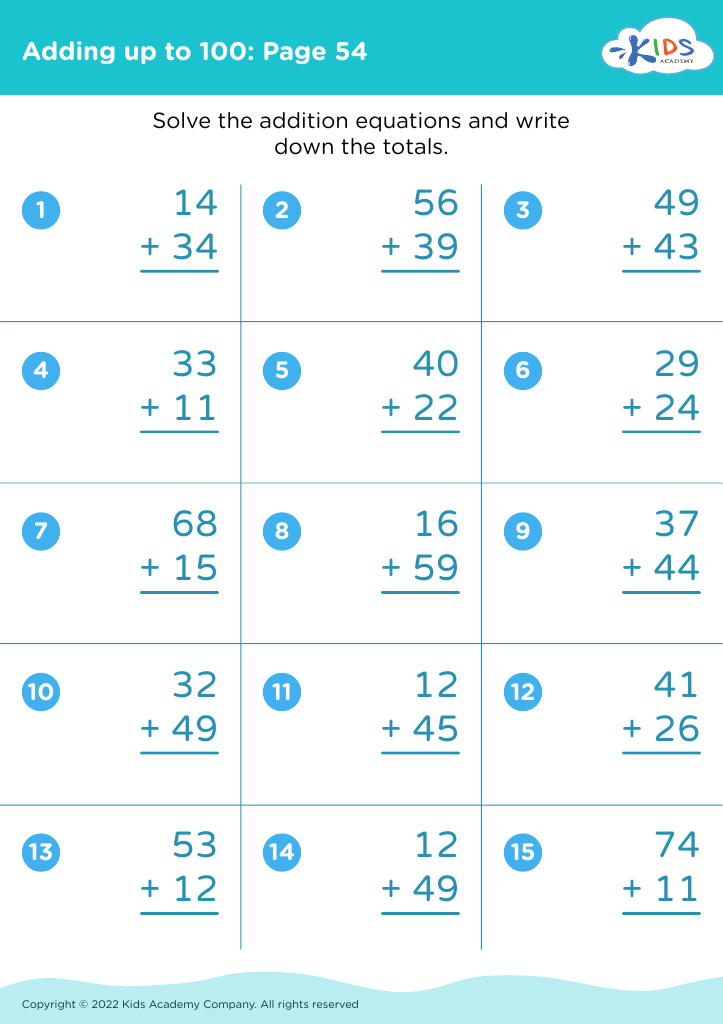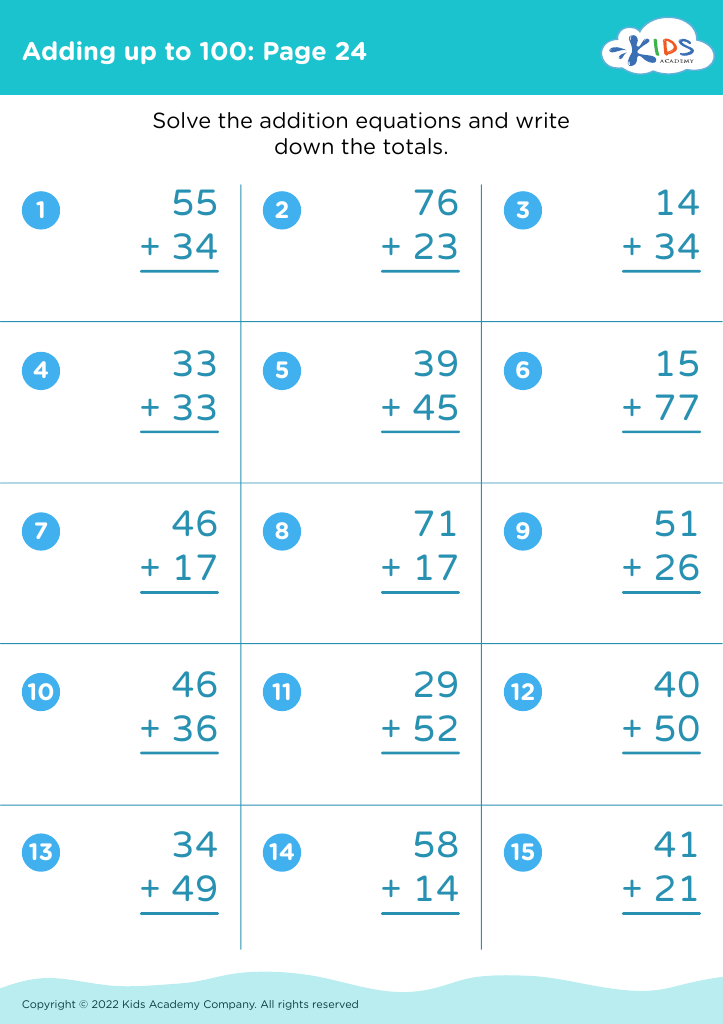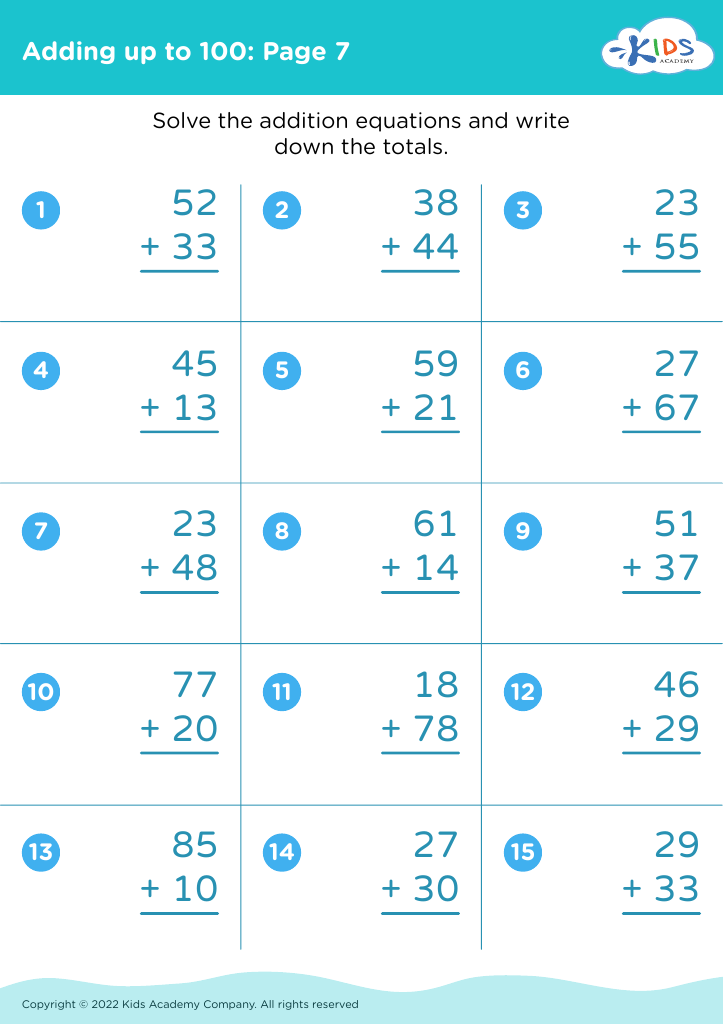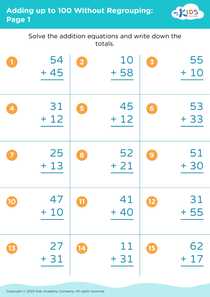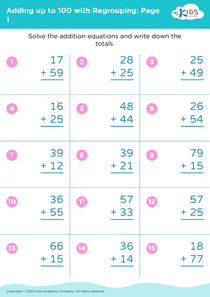Improve number recognition Adding up to 100 Misc Worksheets for Ages 7-9
3 filtered results
-
From - To
Enhance your child's number recognition skills with our engaging "Improve Number Recognition Adding Up to 100 Misc Worksheets" designed for ages 7-9. These printable worksheets offer a fun and interactive way to strengthen their understanding of numbers while mastering addition up to 100. The exercises encourage kids to identify and manipulate numbers through various activities, boosting their math confidence and readiness. With vibrant illustrations and age-appropriate challenges, these resources make learning enjoyable. Help your child develop essential early math skills and lay a strong foundation for their future education. Dive into the world of numbers today!
Improving number recognition and addition skills for children aged 7-9 is crucial for their mathematical development and overall academic success. At this age, students are transitioning from basic arithmetic to more complex mathematical concepts, setting the foundation for future learning. Number recognition is essential; it helps children understand mathematical operations and enhances their ability to process numerical information quickly and accurately.
Focusing on addition skills, particularly practicing sums that add up to 100, allows students to strengthen their mental math abilities. This competence boosts confidence and speeds up problem-solving. Additionally, practicing with such specific benchmarks can make learning more engaging and enjoyable.
Moreover, mastery of number recognition and addition is not only important for math classes; it supports critical thinking and analytical skills essential in everyday life. These abilities also serve as building blocks for more advanced topics in science, technology, engineering, and math (STEM) education.
Parents and teachers play a pivotal role in fostering a positive learning environment where children feel supported and motivated to succeed. By emphasizing these foundational skills, they help ensure that students are prepared for future challenges, whether in school or life, minimizing math anxiety and enhancing their overall educational experience.
